Whether it's an emergency or a non-emergency, a member of the public in need of police support will most often be dealing with a member from the Primary Response branch. This branch includes front-line emergency services like Patrol Platoons, Emergency Task Unit, Canine Unit, and Traffic Unit. The non-emergency units that complete this branch include the Patrol Support Callback Unit and the members operating the Resource Front Desk at the TBPS headquarters.
PATROL PLATOONS
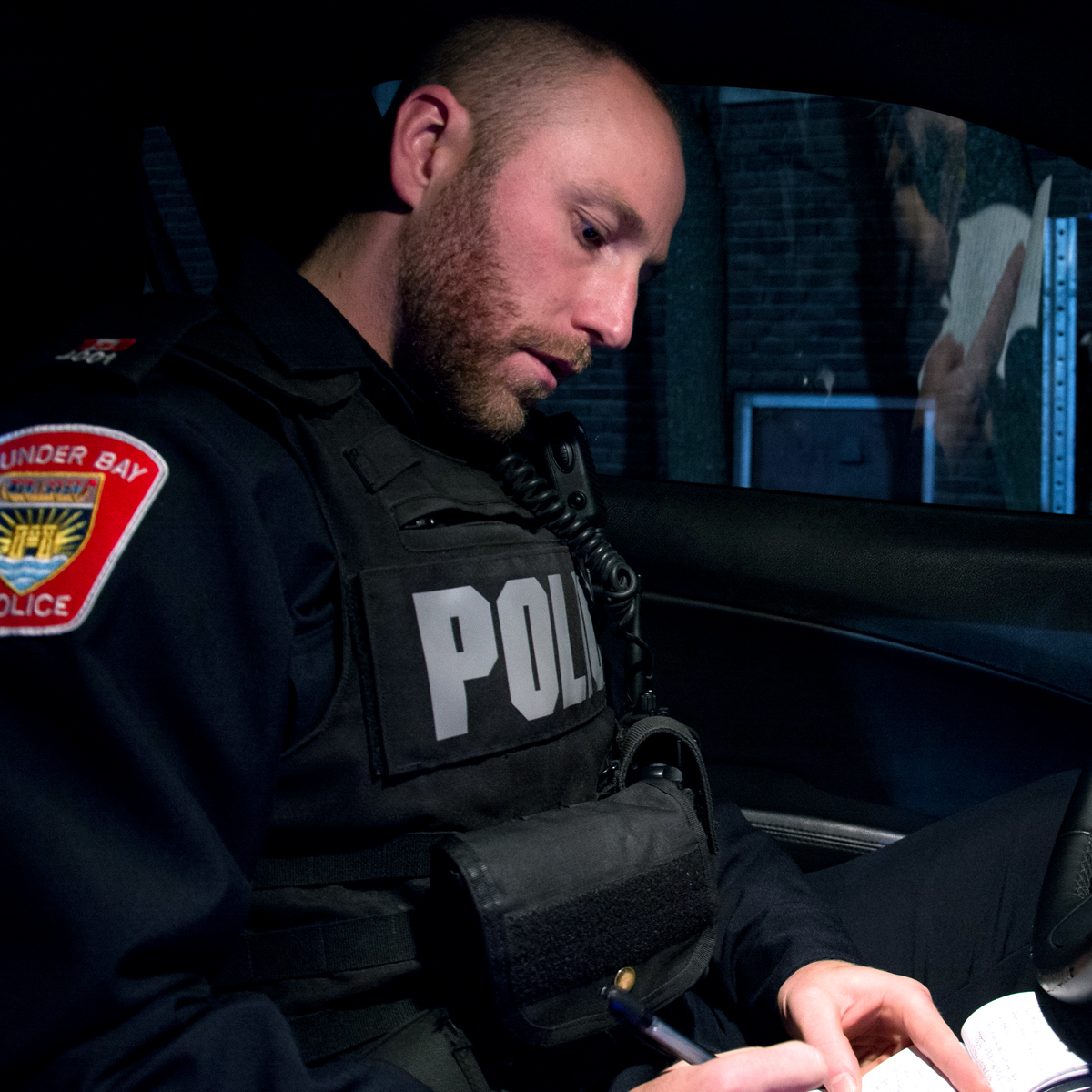
When the public dials 9-1-1 for emergency support, they'll most likely be dealing with a Primary Response officer from one of the four TBPS Patrol Platoons.
These front-line emergency officers represent the foundation of the TBPS's front-line services and are tasked with handling an extreme variety of calls for service. Officers within this unit are often tasked with assisting in medical calls, responding to crimes in progress, assisting with traffic enforcement, and much more. This is all in addition to their routine and ongoing patrols. The Primary Response officers, by the very nature of their being first at any call for service, also become an invaluable part of major investigations. These officers are needed to secure and maintain scenes for the Major Crimes Unit, and take the initial investigative steps before handing a case over to a Criminal Investigations Branch Unit like the Break and Enter and Robbery (BEAR) or Intimate Partner Violence Units.
PATROL SUPPORT CALLBACK
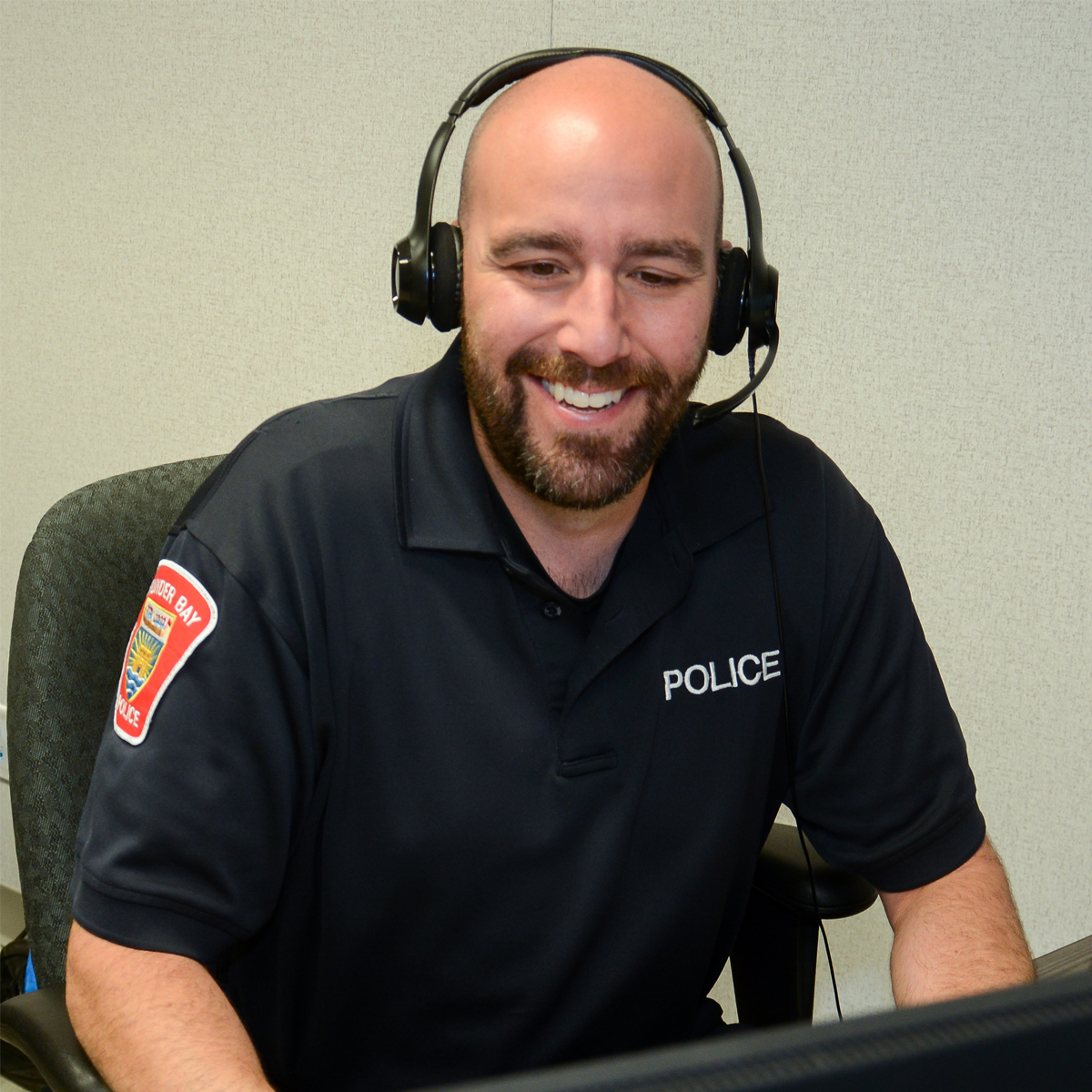
This specialty unit plays a critical role in relieving pressure from their frontline counterparts in Platoon Patrol Units.
When a member of the public places a 911 call to seek emergency assistance, the 911 Communications Operator will determine the nature of the emergency and dispatch the appropriate response. In the case of an incident that requires an immediate police presence, the police 911 call taker will dispatch a patrol officer who may then assign the call to the callback unit depending on the nature of the incident. Followups may be requested when: a suspect is not present; there is no immediate safety risk.
With the call for service now being a confirmed non-emergency, officers assigned to the PSCU can call the complainant back and take a more detailed report of the incident. This allows the patrol officers to more efficiently return to providing emergency services.
TRAFFIC
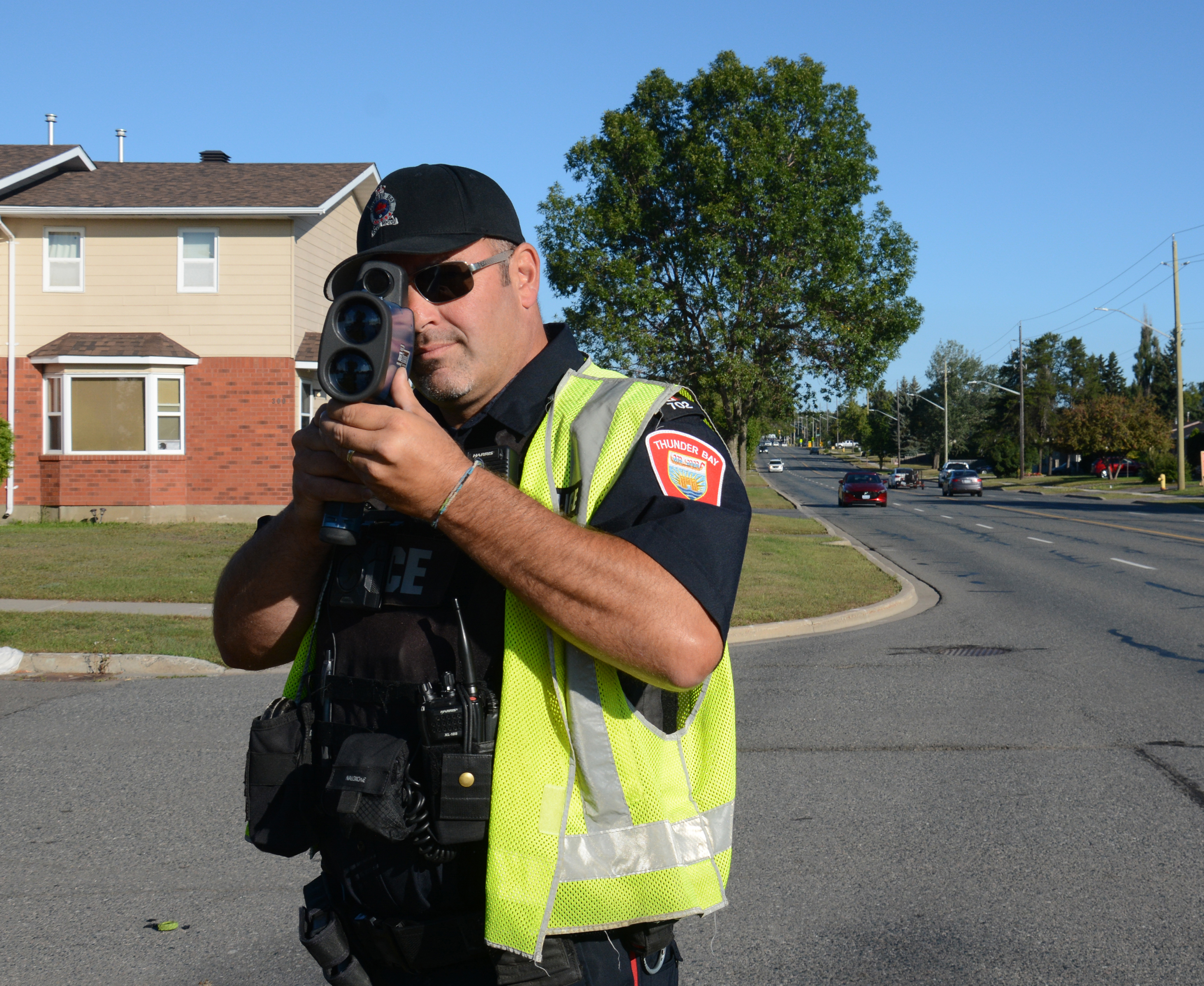
Roadway safety is a key component of maintaining overall community safety. Members of the Traffic Unit work toward safer roadways by employing a strategy that can be divided into two sections — enforcement and education. Enforcement can include routine patrols, or projects that focus on specific traffic violations in specific areas of the city. Meanwhile, education will often be conducted through partnerships with the Media Relations Unit and third-party local media partners. Education is meant to remind motorists that they have an important responsibility to keep our roadways safe for themselves, and everyone else.
EMERGENCY TASK & CANINE
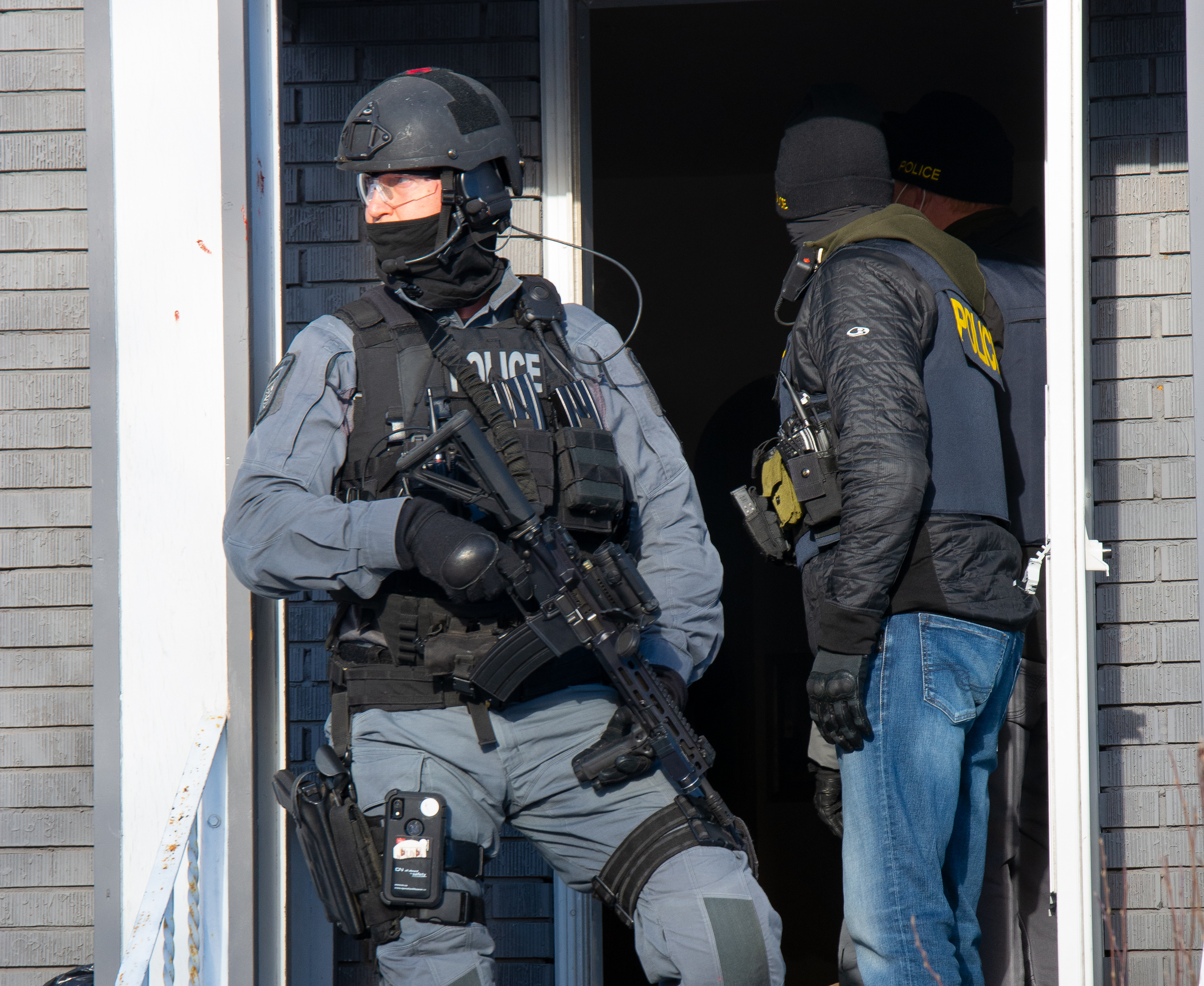
The Emergency Task and Canine Units are made up of specially trained officers who provide support to resolve high-risk calls. Members of the ETU are often dispatched to assist in the execution of warrants in which there is likely the presence of a firearm or evidence of potential violence.
The Canine Unit may be utilized to locate missing persons, track fleeing suspects, or locate contraband during the execution of a search warrant.
RESOURCE/ FRONT DESK
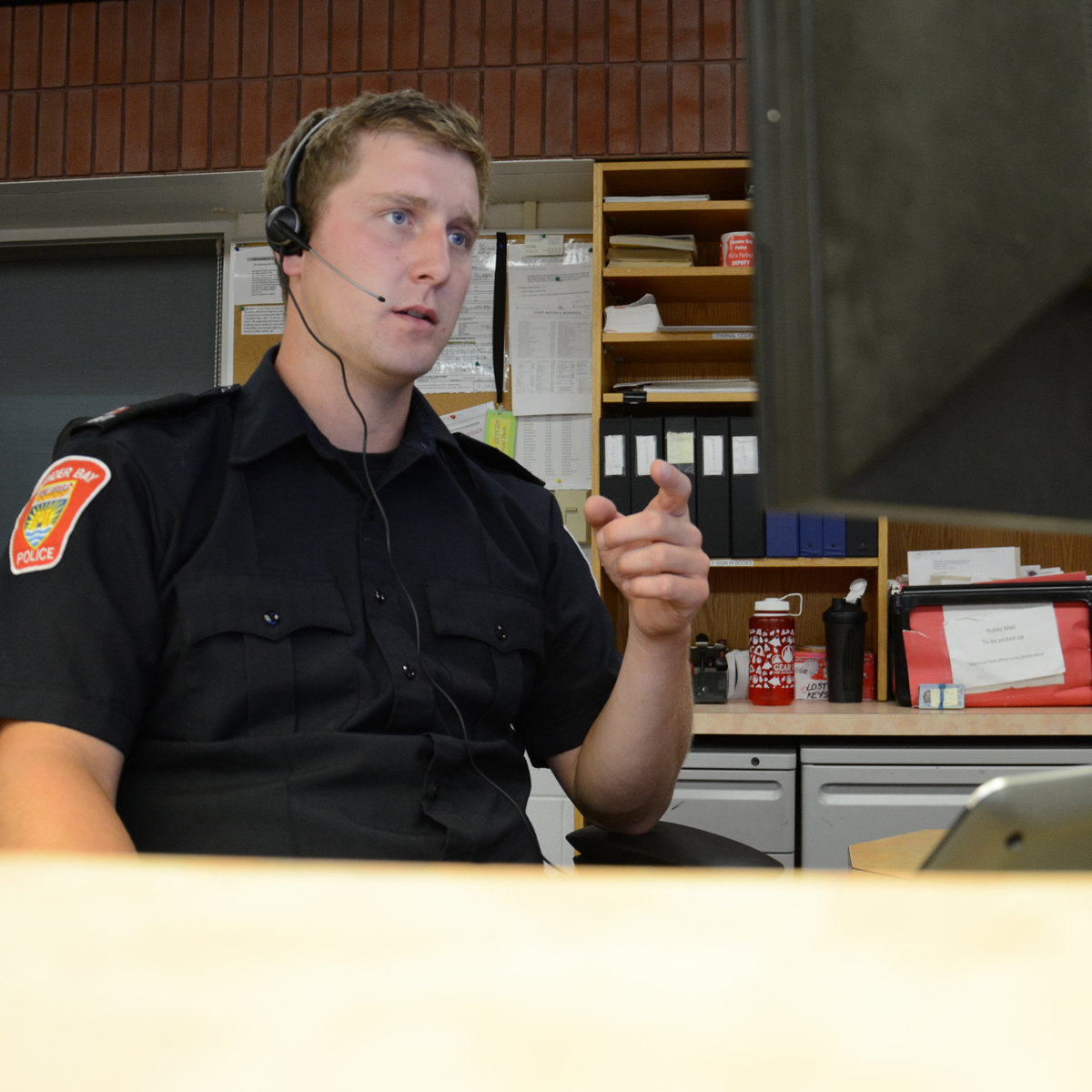
When you call our non-emergency line or visit us in-person at the TBPS headquarters, you are most likely going to be interacting with a member of our Resource Unit. The unit is made-up of mostly cadets, supplemented by some other sworn and civilian employees. They will assist with non-emergency needs, often directing the public to the resources that can assist them. Most of our members in this unit are takin their first step toward their career as a sworn officer of the Thunder Bay Police Service. Learn more about the TBPS Cadet program here.
